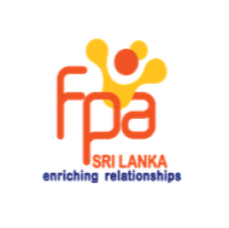Improving Maternal and Perinatal Healthcare

Every mother should have the right to experience that moment of unimaginable joy when a newborn is placed in her arms. However, for many pregnant women this memory will never come to be and the moment of birth is frightening. As adolescent girls are still growing themselves, they are at greater risk of complications if they become pregnant and child brides are less likely to receive proper medical care while pregnant, compared to adult married women.
Some common maternal health conditions or problems a woman may experience during pregnancy such as excessive blood loss leading to anemia, infections such as urinary tract infections, high blood pressure (hypertension), heart diseases, diabetes, unsafe abortions, and obstructed labour are well known factors and are largely preventable and treatable with timely management by a skilled health professional working in a supportive environment.
All women need access to antenatal care in pregnancy, skilled care during childbirth, and care and support in the weeks after childbirth. There has been a focus on initiatives to improve maternal health indicators and progress has been made, reducing the number of maternal deaths. However, coverage of life-saving health interventions and practices remains low due to gaps in knowledge, policies and availability of resources, especially in poor/ rural areas and healthcare may depend on a preconceived health status, age, sociodemographic and behavioral factors, such as education and family income, race and ethnicity.
The terms maternal and perinatal are often used interchangeably. Maternal health relates to conditions affecting women during pregnancy, childbirth/abortion and up to six weeks postpartum/post-abortion. ‘Perinatal health' relates to conditions affecting offspring from the time of fetal viability to the first 28 postnatal days. Each stage should be a positive experience, ensuring women and their babies reach their full potential for health and well-being.
The Vision of the National Strategic Plan – Maternal and Newborn Health (2017-2025) is “A country in which there are no preventable deaths of mothers, foetuses and newborns where every pregnancy is planned and wanted, every birth celebrated, and women, babies and children survive, thrive and reach their full potential”.
If we are to reach this vision, we must strengthen and invest in improving quality of maternal and newborn healthcare (MNH) at all stages, address all causes of maternal, perinatal and neonatal mortality and morbidity, strengthen health systems to respond to the needs and priorities of women, newborns and their families, ensure universal health coverage for comprehensive MNH, address inequities in access to quality care, count every mother, fetus and newborn through measurement, programme tracking and accountability and harness the power of individuals, families and communities in support of MNH.
We must understand the importance of quality and reliable infrastructure such as newborn screening for early identification and treatment of developmental delays and disabilities and other health conditions among infants. We must pay special emphasis to areas such as child immunizations and child nutrition; have skilled, empathetic attendants and hospital staff and make arrangements for the presence of a companion for the pregnant woman through the hospitalization process; improve access to family planning and increase support and information though access to telehealth services.
Having a baby is a big life event, it's natural to experience a range of emotions during pregnancy and after giving birth. Perinatal health encompasses women's mental health issues related to pregnancy and the postnatal period. During these times, women may be at increased risks for antenatal and/or postnatal depression, anxiety, obsessive compulsive disorder, postpartum psychosis and post-traumatic stress disorder (PTSD).
The perinatal period is often a window of opportunity and treatment at the right time can avoid suffering and isolation, strengthen families, ensure children have a healthy start, and help prevent suicide. If we pay equal attention to the mental health elements of pregnant mothers as much as we to the physical health elements, we can achieve our vision of zero preventable deaths of mothers and new born children.
.png)



